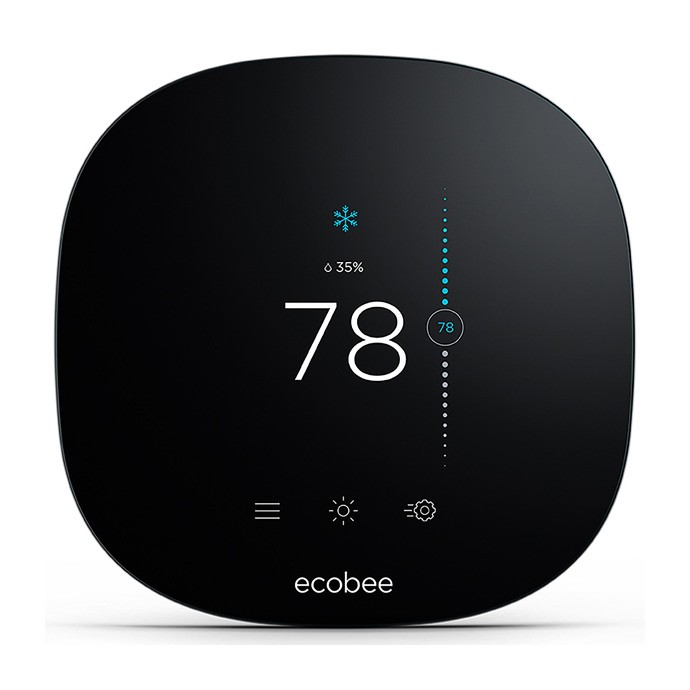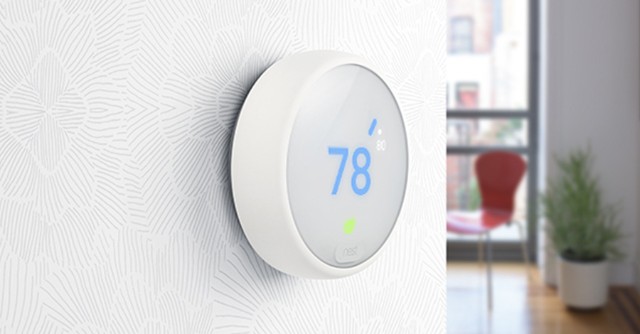We’re dedicated to helping our residential customers find ways to save money and energy especially during the colder months. Explore below for lots of ways to save.
SEASONAL TIP
Start Saving Energy with a Smart Thermostat
When used properly, a programmable thermostat can help you save energy when you're asleep or away from home. Use the thermostat's pre-programmed energy-saving setpoints as a guide, setting the temperature back in the winter and up in the summer. Use the vacation setting to maintain energy-saving temperatures when you are gone for several days. With proper use, programmable thermostats can save about $180 every year in energy costs*.
*Source: ENERGY STAR® www.energystar.gov

ecobee3 Lite Wi-Fi Thermostat
$169 $74.50 after instant rebate.
The smarter wi-fi thermostat that delivers unparalleled value, control and comfort. Controllable from anywhere using your iOS or Android device, this thermostat can help you save energy and reduce heating and cooling costs.

Prevent overloading equipment and circuits. It can cause insulation to burn, create sparks and leave exposed wires.

These units will trip the breaker if the power strip is overloaded and shorted to prevent overheating.

Keep heat where it belongs with proper insulation in attics and walls. You'll save energy 24/7 and be eligible for hundreds of dollars in rebates from Georgia Power.

Close the flue damper tightly, or leave cracked if it's a standing pilot light when the fireplace is not in use. Consider increasing fireplace efficiency with a heat-circulating fireplace and chimney adapter system.

Check for outlets that have loose-fitting plugs, exposed wires or broken plates. Have them fixed by a qualified electrician.

Keeping the blinds and shades open during the day is a no-cost way to naturally heat your home. Close them at night to reduce the chill you may feel from cold windows.

Heating accounts for as much as 50 percent of a home's typical winter energy usage. Maximize the efficiency of the unit by changing the filters once a month, or every three months for pleated filters. Ensure that heating vents are clear of any obstructions, such as furniture or drapes.

Developing a schedule to conduct home checks of appliances and outlets is a simple way to catch potential fire hazards.

Know where the nearest fire extinguishers are and how to use them. Only Class C extinguishers are safe to use on energized electrical equipment.

Replace cracked or peeling caulk or weather stripping around doors and windows to save up to 10 percent on energy use.

Do not place appliance cords where they will come in contact with the stove or other heated surfaces. Do not hang appliance cords over countertops, where they might be accidentally pulled down. Worn or frayed appliance cords can cause fires, electric shock and even electrocution. Inspect cords regularly to assess wear and replace cords as needed.

Prevent oil and dirt buildup on electrical appliances which can cause electrical equipment to overheat and short-circuit.

Keep space heaters away from furniture, curtains, sinks, tubs and water. Do not lay rugs or carpet over the cord. Do not use heaters if the cord is frayed or broken, and do not use an extension cord. Turn off heaters before leaving home or going to bed.

Set your thermostat to 68 degrees or lower and maintain a consistent temperature in the house. Each additional degree has a substantial impact on energy costs. Install a programmable thermostat that automatically adjusts the home's temperature settings when you are away from the house, and save up to $100 a year in energy costs, plus Georgia Power rebates up to $75.

Make sure to use safety covers on all outlets accessible to children.


